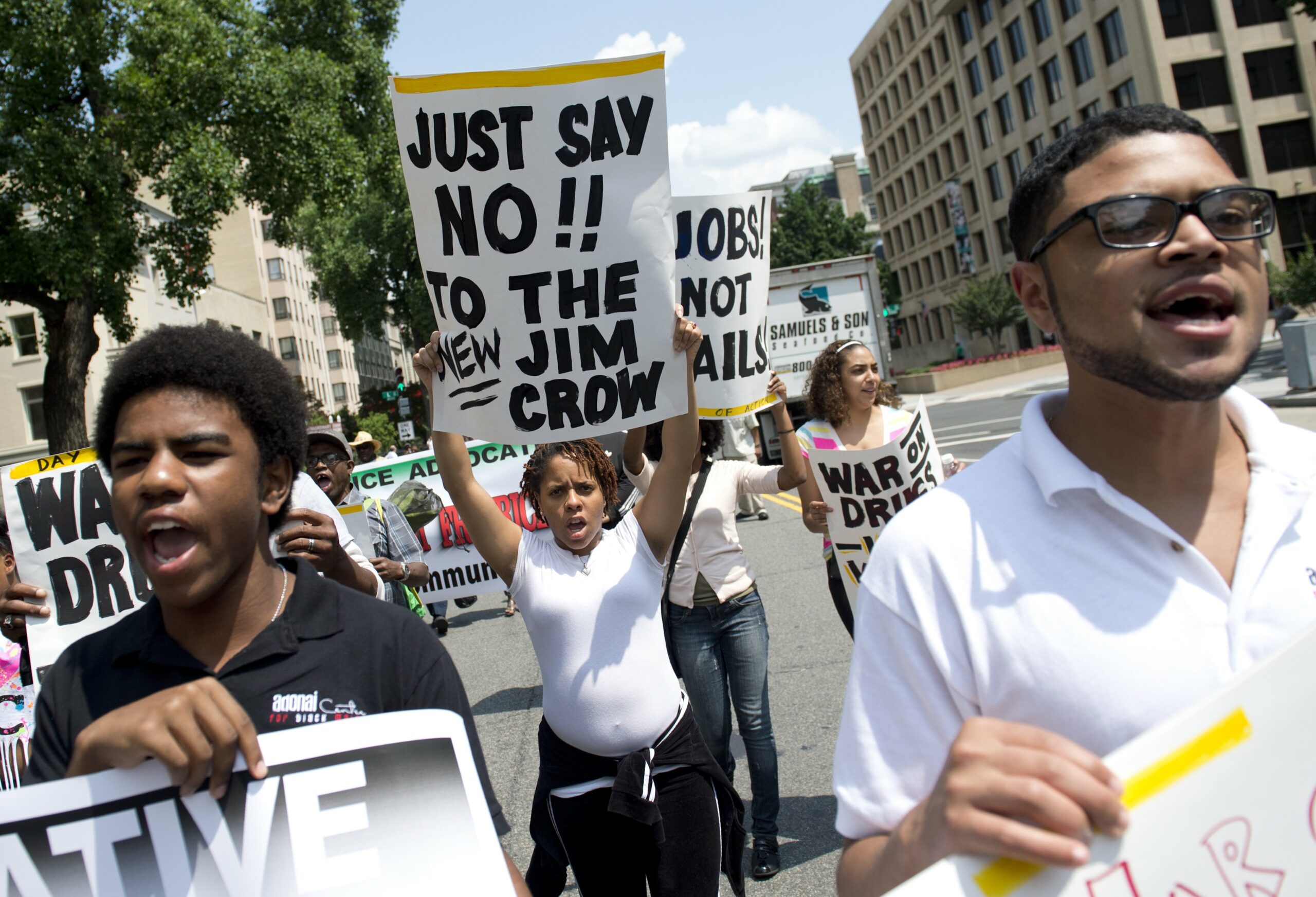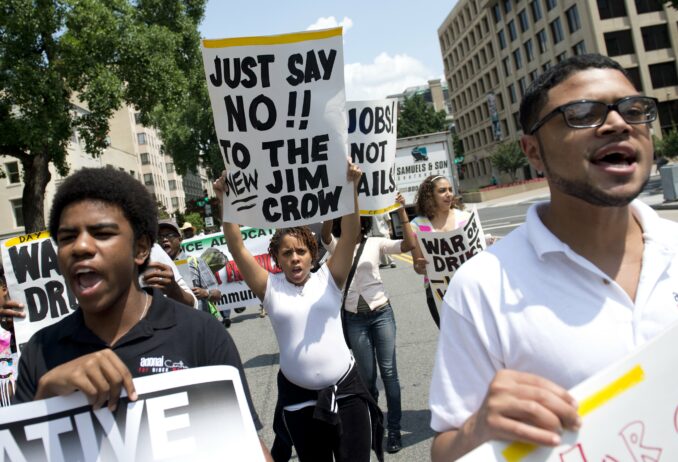

Black Lives Matter protest against War on Drugs.
When President Joe Biden delivered the State of the Union address in front of Congress Feb. 7, among the many topics he covered, were the opioid and overdose epidemics. He specifically mentioned the proliferation of fentanyl analogues and — with someone heckling him saying it was his fault — his plan to combat the epidemic.


Black Lives Matter protest against War on Drugs.
On a good note, he briefly cited “a law making it easier for doctors to prescribe effective treatments for opioid addiction.” (whitehouse.gov) This law expands access to methadone and buprenorphine for people both inside prisons and in the outside world. Access to methadone and buprenorphine is vital for the recovery of the addicted person.
While there are other methods of getting clean — the abstinence model and the naltrexone models — methadone and buprenorphine remain the gold standard in addiction treatment. Efforts to expand treatment by making prisons provide them and abolishing the X-Waiver requirement for doctors to prescribe buprenorphine have been praised.
However, Biden presented the story of a young woman named Courtney. She was only in high school when she discovered drugs, prescription pills. Like all victims of the opioid and overdose epidemics, her spiraling into deeper addiction was the fault of companies such as Purdue Pharma and Teva Pharmaceuticals. Her spiral ended when she discovered heroin and fentanyl analogues; she died at the young age of 20.
Biden proposed to launch a “major surge to stop fentanyl production and the sale and trafficking.” He proposed more inspection machines, increased and stricter searches on the Mexican border and for delivery services such as FedEx to inspect more packages for drugs. He called for a “strong crackdown” on drug dealers and traffickers.
‘Surge’ will target most vulnerable
This proposal is a horrible idea for three major reasons, the first being that the causative factor of addiction in the United States is the legal sale of prescription opioids. Had Teva Pharmaceuticals, Johnson & Johnson and Purdue Pharma not pushed their poisons, Courtney and thousands of others would not have died. Unlike Black, Brown and poor white people, who get punished for drug dealing and trafficking, these bourgeois boardroom drug dealers got away with their crimes until recently, when they were finally prosecuted.
Secondly, this “surge” will lead to more of what has always happened: Black and Brown people will, once again, be imprisoned at a higher rate than white people for drug dealing. The “War on Drugs” has always been about race and racism, in the sense that its launching started because white bourgeois politicians deemed Black and Brown people to be the drug pushers.
People who could be rehabilitated into not dealing drugs — like with job training and opportunities — are instead put in jail, which robs them of the chance to change and to help stop trafficking of fentanyl.
Finally, it’s been demonstrated that as prohibition of drugs and incarceration for their use rises, people turn to even more exotic and dangerous drugs. With fentanyl crackdowns in the Kensington section of Philadelphia, for instance, the “heroin” and the “fentanyl” sold there were, in actuality, a horse tranquilizer called Xylazine. This drug is dangerous and can cause deadly side effects.
According to the Global Commission on Drug Policy’s report, “Regulation: The Responsible Control of Drugs,” the illicit diversion of prescription drugs and the dealing of illegal drugs is best handled in a completely different way. Instead of crackdowns and a War on Drugs (really a “War on Drug Users”), the commission proposes uniform legalization of all drugs, creating a drug supply free of toxic adulterants.
This is the logical expansion of medication-assisted treatment programs, such as those using methadone and buprenorphine. The report calls for priority in helping groups specifically harmed by prohibitionist policies: Black and Brown communities.
While the expansion of medication-assisted treatment programs is commendable — though it was at the behest of the recovery and drug users’ communities — Biden’s efforts to expand the already counterintuitive War on Drugs are not. We have to resist efforts to make life more difficult for communities that have been ravaged by the War on Drugs.
This statement was recently issued by over 30 groups. On Friday, March 28, Dr. Helyeh…
When Donald Trump announced massive tariffs on foreign imports April 2, Wall Street investors saw…
The century-long struggle to abolish the death penalty in the U.S. has been making significant…
Download the PDF May Day appeal to the working class Revolutionary change is urgent! Gaza…
Philadelphia On March 26, the Pennsylvania Supreme Court denied political prisoner Mumia Abu-Jamal permission to…
There are two important and overlapping holidays on April 22: Earth Day and Vladimir Lenin’s…